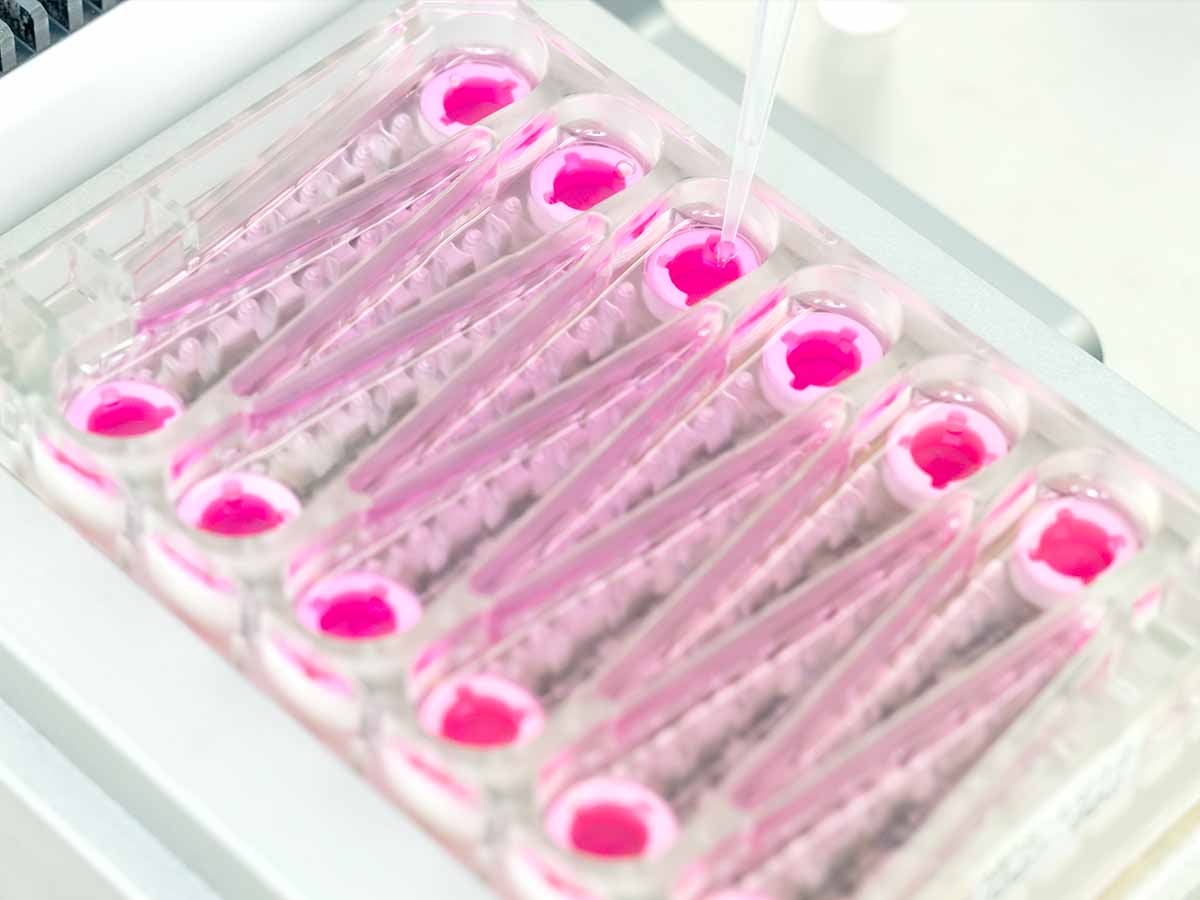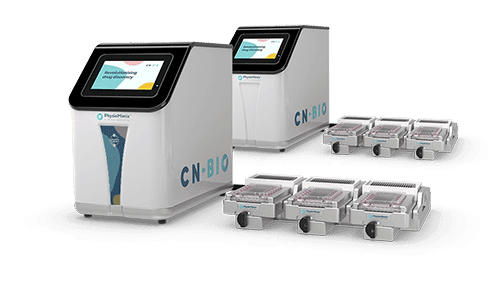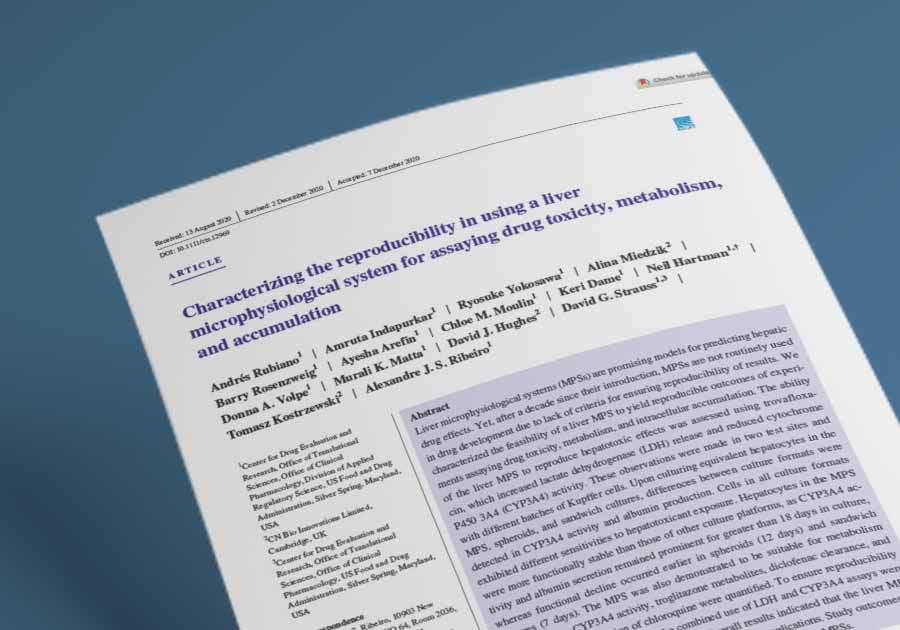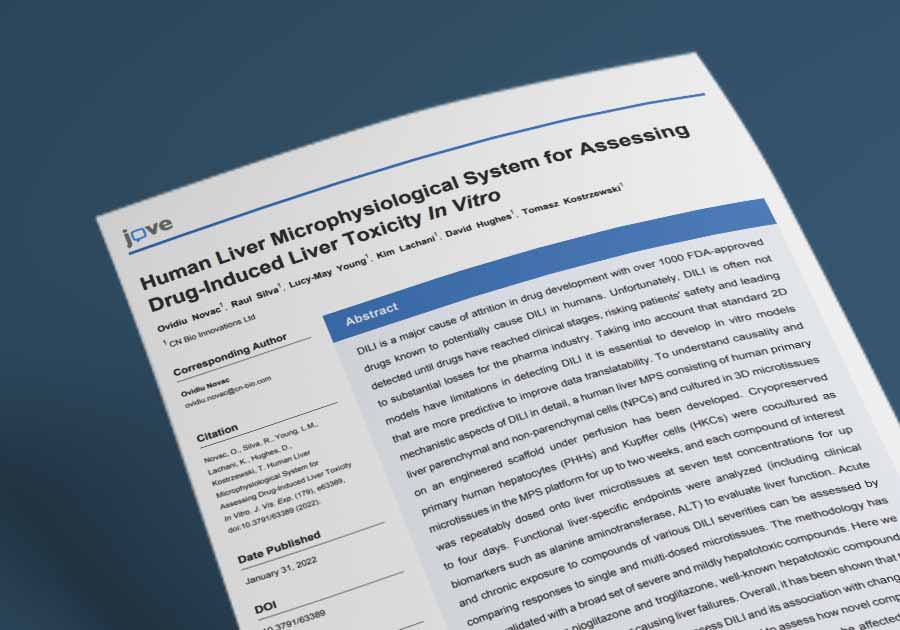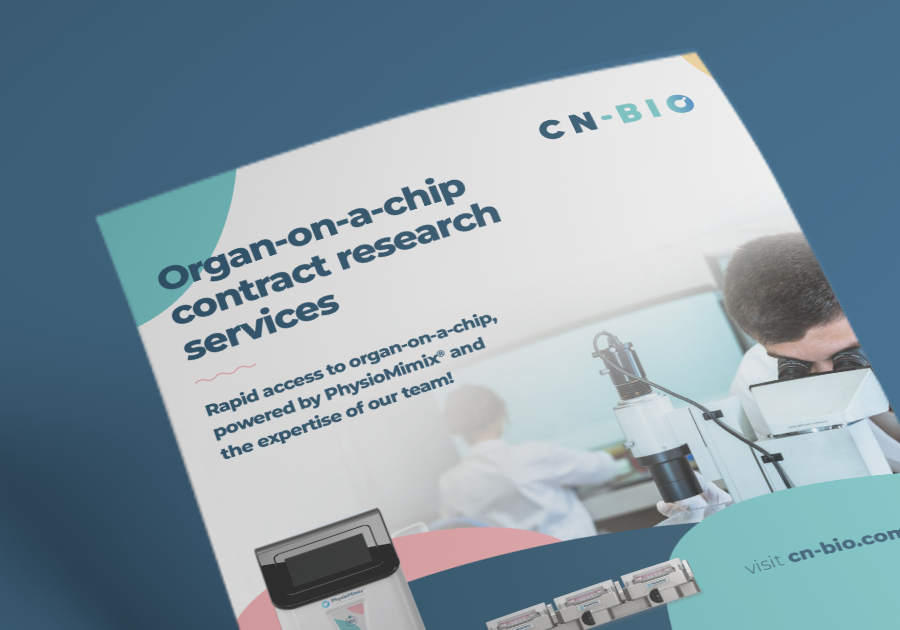A sensitive and specific means to predict human hepatotoxicity
Employing our Liver-on-a-chip hepatic co-culture model (evaluated by our collaborators at the U.S. FDA), our DILI in vitro Service can screen your small molecules, antibodies, ASO, and gene editing reagents to establish human DILI risk.
Service overview:
Our Service assesses at least six hepatic health parameters simultaneously, including clinical markers of liver injury. This approach achieves the sensitivity and specificity required to identify hepatotoxins missed in animals, and other in vitro assays.
- Test a range of drugs to enable lead or candidate selection
- Derive human data to complement animal studies and explain non-concordant findings
- Explore DILI under a range of conditions: healthy, inflammation, fatty
- Test highly human-specific new modalities
- Compare acute vs chronic toxicity responses
- Investigate drug–drug interaction events
- Check for CYP induction or inhibition
- Use retained samples to understand drug metabolism
- Bespoke multi-organ, or studies with circulating immune cells available on request
Customer feedback
I worked with CN Bio on a DILI Services project to predict which formulation of the same test agent would be safe for humans. Previous In vivo studies demonstrated inter-species differences between the formulations in animals but thanks to the expertise of CN Bio, I was able to rapidly gain human-relevant data that helped to move my project forward.
Professor Gerry Boss M.D.
Distinguished Professor of Medicine, Department of Medicine. UCSD
View more PhysioMimix reviews on SelectScience

How the service works:
Through the co-culture of primary human hepatocytes and non-parenchymal cells, and the evaluation of multiple endpoints, our assay offers a complete assessment of DILI risk.
This service provides higher content data than spheroids and sufficient throughput to deliver concentration-response curves.
Your dedicated contact will work collaboratively with you from the start to the end of the project.
- Design and finalize experiment plan
- Customer supplies required amount of drug(s)
- Two weeks to complete cell culture
- Two weeks to run endpoint assays, analyze data and complete the report
- One to two months to complete the study from receiving an order
Standard DILI cell culture timeline

Endpoint measurements
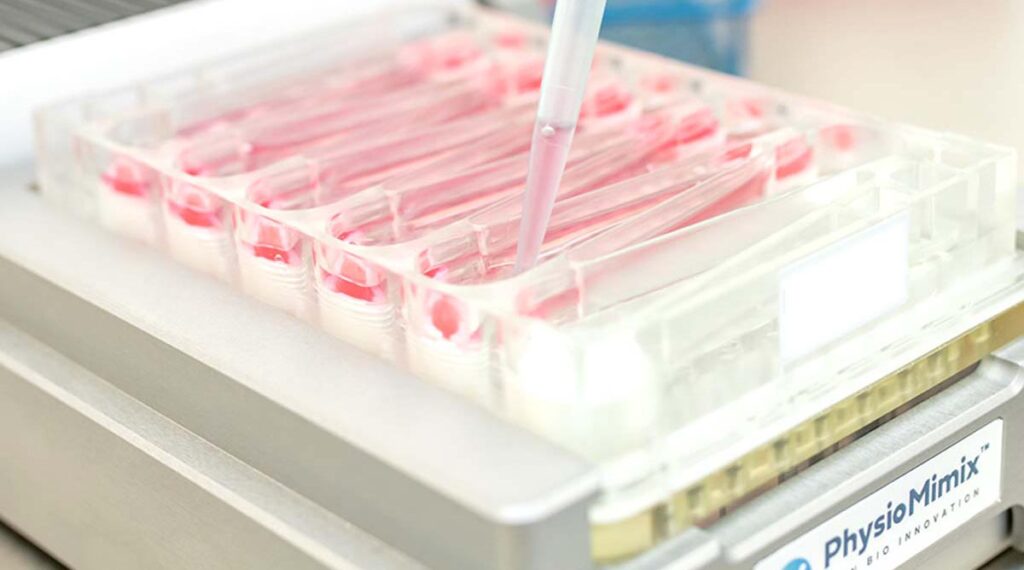
Included, but are not limited to:
Functionality biomarkers
- Cytochrome P450 enzyme activity
- Albumin production
- Urea production
Clinical liver heath biomarkers
- Lactose dehydrogenase (LDH) release
- Adenosine Triphosphate (ATP)
- Aspartate Transferase (AST)/Alanine amino transferase (ALT)
Optional profiling analysis
- Quantitative PCR
- Transcriptomics
Related applications
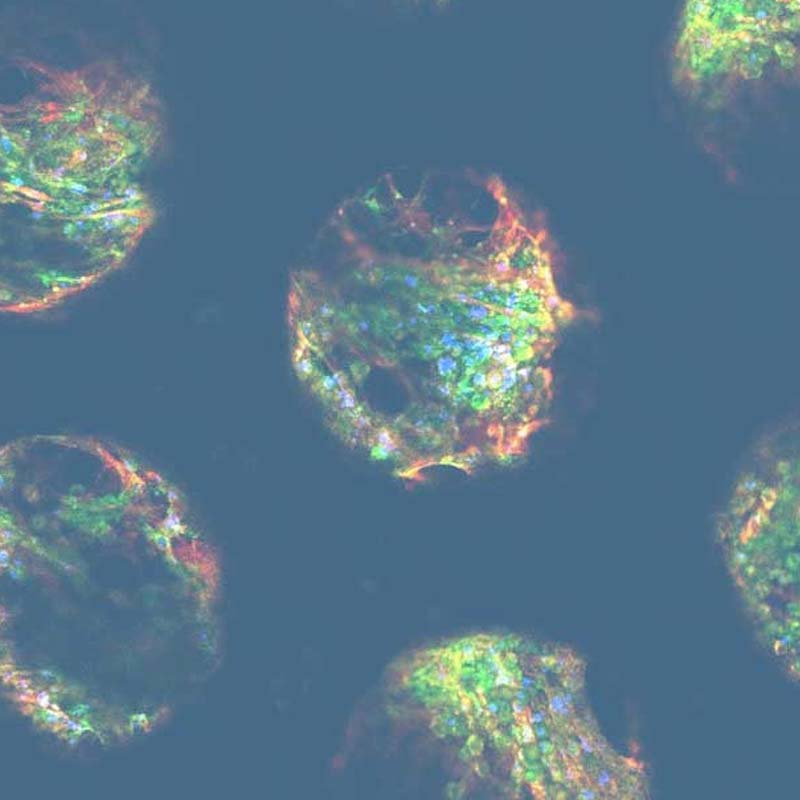
Drug-induced liver injury
Our DILI assay can assess the toxicity of a wide range of entities (small molecules, protein, ASOs, AAVs, etc) in the presence or absence of liver disease.
It facilitates more informed predictions of human liver responses to acute and chronic drug exposure using a broad spectrum of clinically translatable endpoints.
